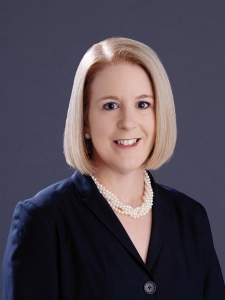by Mika Day, WA Women’s Foundation Summer Intern 2017
As a college student, beginning a summer internship for the first time can seem like a very daunting task. Oftentimes around your circle of friends, you hear of experiences where someone nails an internship at a company of their dreams, only to be stuck getting coffee and carrying boxes of paperwork all summer. Due to these horror stories, I came into my internship this summer at Washington Women’s Foundation with an open mind, not entirely knowing what I was going to encounter.

To my pleasant surprise, from the second I walked into the 2100 building and began working at Washington Women’s Foundation, I felt welcome by both the staff and the members of the Foundation. Working here throughout the summer, I soon discovered that the staff is full of incredibly hard-working, confident, intelligent women who carry a real passion for what they do. The work environment at the office is extraordinarily collaborative, dynamic, and fun because people who work here truly enjoy what they do and who they do it with. With this, the staff is also constantly looking for ways to make the Foundation better by evaluating the way that they do things and thinking of more innovative ways to do them in the future in order to widen the Foundation’s scope of influence. Their care for their grantees, their members, and for their non-profit work exudes through their dedicated and tireless efforts. Additionally, the women who work at WA Women’s Foundation are exceptionally focused on making their programming and events great experiences for their members, where women can both learn and expand their mind while formulating close-knit social relationships with other members. The relationship between the staff and the members of the Foundation are a large part of what makes the Foundation thrive, as both groups are steered toward the same goal of addressing the needs of the people, all while strengthening communities in Washington State.

Being an intern at WA Women’s Foundation, I found myself to be an integral part of helping the Foundation achieve these goals. From sitting in and learning about DEI topics in Discovery Days Committee meetings to helping the staff organize letters of inquiry from various non-profits across the state, my duties as an intern were varied and exciting. My wide-ranging set of tasks that I had everyday opened my eyes to what working for a non-profit looks like and made my experience the well-rounded one that it was. Throughout my time here I have learned so much about the non-profit industry, the collective-giving model, the grant-making process, DEI, and many other topics all while learning other valuable skills like data-inputting, maintaining paper and digital organizational systems, events management, communication practices, Excel work, Salesforce basics, and general office and organizational skills. I value the talents and abilities I learned here so much as I can take them into my future endeavors as both a student and a future young professional in the workplace.
In conclusion, spending the summer as an intern at Washington Women’s Foundation was far from the coffee-grabbing and file-copying experience that I feared. My time here was so much more valuable than that. What I enjoyed the most about my internship is that I never felt like just an intern here. The work that I was doing felt important, the things that I learned felt unique to the Foundation, and colleagues at WA Women’s Foundation became friends and mentors. I leave this summer holding the staff and the members of WA Women’s Foundation in the highest regard and I hope that one day I can, in some way, shape, or form, be a part of the important work that they do at the Foundation every day.
Mika Day grew up in Redmond, and will be a junior this fall at Chapman University, where she is studying Business Administration with an emphasis in entrepreneurship and a minor in Women’s Studies
 Letter from the President
Letter from the President



 Washington Water Trust, 2016 Environment Grantee
Washington Water Trust, 2016 Environment Grantee Forefront, 2015 Health Grantee
Forefront, 2015 Health Grantee